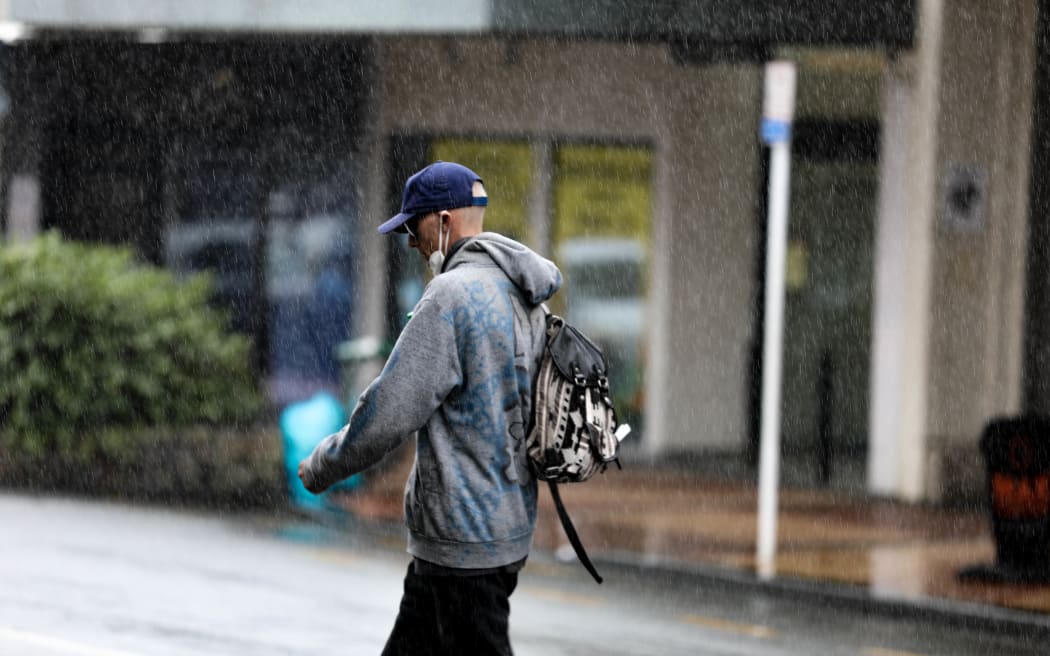Politics
Advocates Demand Action as Māori Youth Homelessness Surges

Advocates for youth homelessness are intensifying calls for urgent action to assist vulnerable young people in New Zealand, particularly those without safe and stable housing. In Auckland, the local council reported a staggering 90 percent increase in homelessness since September 2023. Alarmingly, approximately half of the homeless population is under the age of 25, highlighting the critical need for targeted solutions.
The issue is complex, compounded by changes to emergency housing criteria enacted last year. Māhera Maihi, the CEO of Mā te Huruhuru Charitable Trust, is leading efforts to provide solutions. Her organization operates two youth housing facilities with a specific emphasis on Māori principles. Maihi explains that many young Māori express a desire for more culturally appropriate accommodation, reflecting their unique needs and experiences.
“Young people are saying that they want more kaupapa Māori supported accommodation,” Maihi stated during an interview with RNZ’s Saturday Morning. She emphasized that many young people face unsafe and unstable living conditions due to family violence, breakdowns, and overcrowding. Furthermore, queer and gender-diverse youth frequently encounter additional barriers, making it difficult for them to navigate the housing system.
Challenges range from minor issues, such as lacking bank accounts and identification, to major obstacles like being unable to afford bond payments and upfront costs. Maihi pointed out a concerning trend known as the “care-to-homelessness pipeline,” where young individuals exiting the care system find themselves without adequate support.
The recent changes to emergency housing qualifications have further complicated the situation. Applicants may now be required to demonstrate that they did not contribute to their own housing instability. Stricter obligations have also been placed on clients to secure more permanent accommodation. Despite these challenges, Maihi asserts that Mā te Huruhuru’s approach has shown promising results.
At He Pā Piringa, the organisation provides 18 beds for homeless youth aged 17 to 21. Maihi highlights that their facilities offer a whanau-centered approach, fostering a sense of community and belonging. “It takes a community, that it takes all the generations—our kaumatua, kuia, pakeke, and taitamariki,” she said.
The organization has reported zero incidents of bad behavior among its residents, an achievement that Maihi attributes to the supportive environment. “We do amazing things like using wananga as a concept,” she explained. Young people are engaged in cultural practices, including visits to the marae, where they learn about their heritage and the importance of cultural identity.
Maihi noted that participants often express a profound sense of belonging. “They say, ‘I can’t explain it, but there’s this thing, you know, that I just feel like I’m at home,'” she shared. The positive atmosphere at He Pā Piringa has resulted in no police callouts for violence and no property damage, a remarkable feat both in New Zealand and internationally.
Despite these successes, the true extent of youth homelessness among Māori remains uncertain, largely due to a lack of official data and a focused strategy to address the issue. Many young individuals do not qualify for social housing as current rating criteria fail to account for their vulnerabilities.
Maihi elaborated on the difficulties faced by young people in securing permanent housing. “We’ve been able to place 19 young people into forever homes, which is very difficult considering there’s a social housing rating,” she explained. Young individuals often receive low ratings, which limits their access to suitable housing options.
To address this systemic issue, Maihi advocates for a “vulnerability multiplier” to improve the assessment process for youth in need. “If we’re going to use a system like this, we need to think about having a vulnerability multiplier that reflects young people’s complex needs,” she stated.
As the call for action grows louder, advocates urge policymakers to prioritize the needs of Māori youth experiencing homelessness. The current landscape demands a comprehensive and culturally sensitive approach to ensure that all young people have access to safe and stable housing.
-

 World2 weeks ago
World2 weeks agoPrivate Funeral Held for Dean Field and His Three Children
-

 Top Stories3 weeks ago
Top Stories3 weeks agoFuneral Planned for Field Siblings After Tragic House Fire
-

 Sports3 months ago
Sports3 months agoNetball New Zealand Stands Down Dame Noeline Taurua for Series
-

 Entertainment3 months ago
Entertainment3 months agoTributes Pour In for Lachlan Rofe, Reality Star, Dead at 47
-

 Entertainment2 months ago
Entertainment2 months agoNew ‘Maverick’ Chaser Joins Beat the Chasers Season Finale
-

 Sports3 months ago
Sports3 months agoSilver Ferns Legend Laura Langman Criticizes Team’s Attitude
-

 Sports1 month ago
Sports1 month agoEli Katoa Rushed to Hospital After Sideline Incident During Match
-

 World3 weeks ago
World3 weeks agoInvestigation Underway in Tragic Sanson House Fire Involving Family
-

 Politics2 months ago
Politics2 months agoNetball NZ Calls for Respect Amid Dame Taurua’s Standoff
-

 Top Stories3 weeks ago
Top Stories3 weeks agoShock and Grief Follow Tragic Family Deaths in New Zealand
-

 Entertainment3 months ago
Entertainment3 months agoKhloe Kardashian Embraces Innovative Stem Cell Therapy in Mexico
-

 World4 months ago
World4 months agoPolice Arrest Multiple Individuals During Funeral for Zain Taikato-Fox















